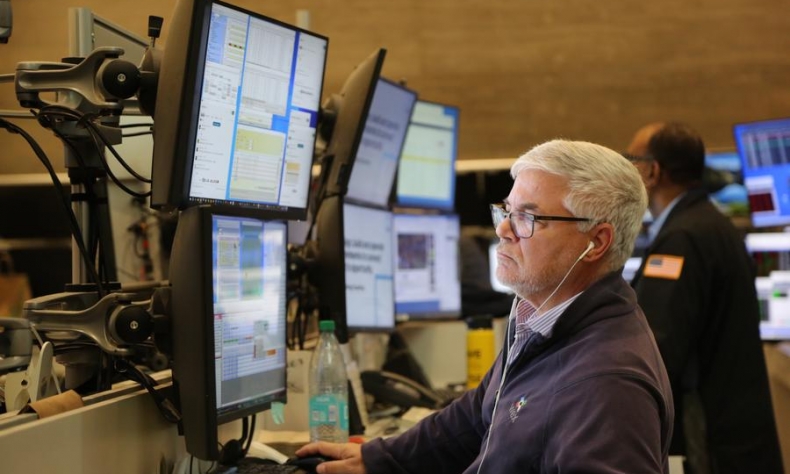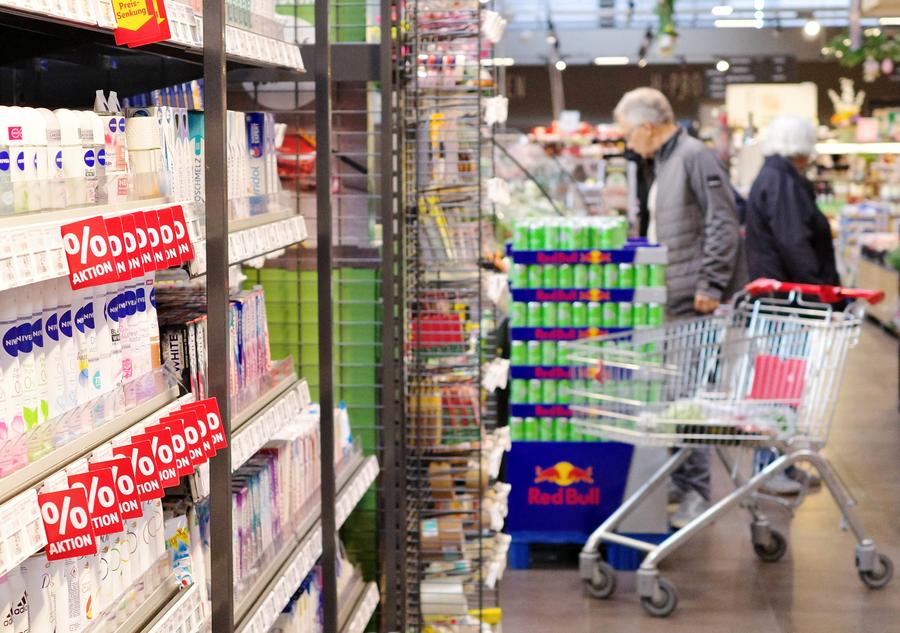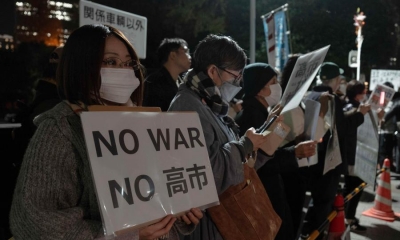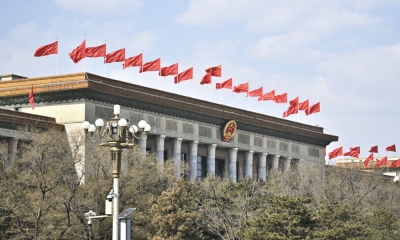A Lesson for the West

While China trim the sails to meet temporary economic headwinds head-on by unveiling a package of incremental policies, some Western countries must realize anti-China measures like increased tariffs will only lead to their own greater inflation.
The tumultuous situation in the world economy today and the economic consequences of the geopolitical crises in Ukraine and in the Middle East have serious implications for the world economy. The sanctions and other restrictions placed on Russia and the increasing view in the United States and Europe of China as a rival rather than a partner have led to measures that are having a more negative effect on the countries imposing them than on the intended recipients.
While stock market gyrations often give the impression of an uptick, the real economy of the United States is in dire straits with rampant inflation and the major question determining the outcome of the U.S. presidential elections is which party can avert a plunge into chaos.
The U.S. Congress, aware of the widespread voter dissatisfaction, has issued a flurry of new anti-China measures, trying to portray China as the cause of U.S. economic woes rather than their own mistaken policies, but not everyone is taking the bait.
A recent study by the Wharton School at the University of Pennsylvania clearly shows that this anti-China wave is threatening the loss of major Chinese scholars and scientists working and studying in the United States and making valuable contributions in various areas of knowledge. Many business leaders, represented in particular by the U.S.-China Business Council, have expressed their growing concern at the recent tariffs imposed by the Department of Commerce on China under Section 301, raising the rate between 25 and 100 percent, stating that these will have more deleterious effects on American businesses than on China.
It is also clear that the anti-China measures will have a negative effect on the U.S. consumer. Increased tariffs will only lead to even greater inflation of the prices of food and other essentials. While all this talk about creating alternative supply chains sounds nice, revamping the economy into any new structure may take years, or may prove to be impossible without massive austerity. For American farmers, trying to restrict trade with China will only lead to more farm foreclosures. There is no replacement at the present for the huge Chinese market of 1.4 billion people, so downsizing agriculture production will become inevitable.
The situation is even more precarious in Europe, which is suffering the direct effects of the war in Ukraine, cutting off crucial energy supplies from Russia and imposing greater restrictions on China trade. The underlying economic reality of these measures has already led to a significant split between the EU and individual countries like Germany, Hungary and Spain, which have raised their voices against the draconian policies being put forward by the EU. Ultimately, the economic reality will take precedence over the geopolitical intentions of the Brussels bureaucracy if Europe is to avoid falling into a depression.

Meanwhile, faced with these temporary headwinds, China is trimming its sails to meet them head-on by unveiling a package of incremental policies designed to strengthen counter-cyclical macro policy adjustment, expand effective domestic demand, increase efforts to help enterprises, stabilize the real estate market and boost the capital market. Zheng Shanjie, head of the National Development and Reform Commission (NDRC), said at a press conference on October 8 that a raft of reform measures conducive to economic development will be rolled out, including a new negative list for market access and mechanisms to ensure increased investment in future industries. China will expand the catalogue of industries that encourage foreign investment, unveil a new group of major foreign-invested projects and make its visa-free transit policies more open, according to Zheng.
Projects which were on the drawing board have now been front-loaded in order to bring them into play earlier than planned. The People’s Bank of China, China’s central bank, has reduced the reserve ratio and interest rates to encourage investment. China will also broaden the area and scope of special treasury bonds to be used as project capital for local governments. The goal is to maintain the momentum of the Chinese economy until many of the tensions have been resolved.
While the present policy of the West is oriented toward more restrictive measures on China’s development, this will come back to haunt those governments. The fact of the matter is that the Chinese economy is in much better shape than the economies of the West. The economy of the United States, the biggest debtor in the world, has become a veritable bubble economy, and feeding that bubble will prevent any major funding for infrastructural development. Only major financial reform will prevent the debt from sucking up new funding intended for investment in the physical economy. It will also necessitate an end to the continual outflow of money to the non-productive and destructive war economy. Unfortunately, these measures are just not on anybody’s agenda at the moment.
For the European nations, the situation is even more critical. East-West trade has increasingly served as the lifeblood of the European economy over the last few decades. Germany, in particular, has benefited enormously from the Belt and Road Initiative, in spite of not being officially a part of it. “De-coupling” under the rubric of “de-risking” threatens the risk of depression, and there are clear signs that industrial Germany is not prepared to fall on its sword for the sake of fulfilling Anglo-American geopolitical aims.
In addition, China has the support and the cooperation of the countries of the Global South, who were never enamored with the “American Dream.” The growing influence of mechanisms like BRICS and the G20 on the global arena represents the emergence of a new political order with which the advanced Western countries must ultimately learn to live with.
 Facebook
Facebook
 Twitter
Twitter
 Linkedin
Linkedin
 Google +
Google +







